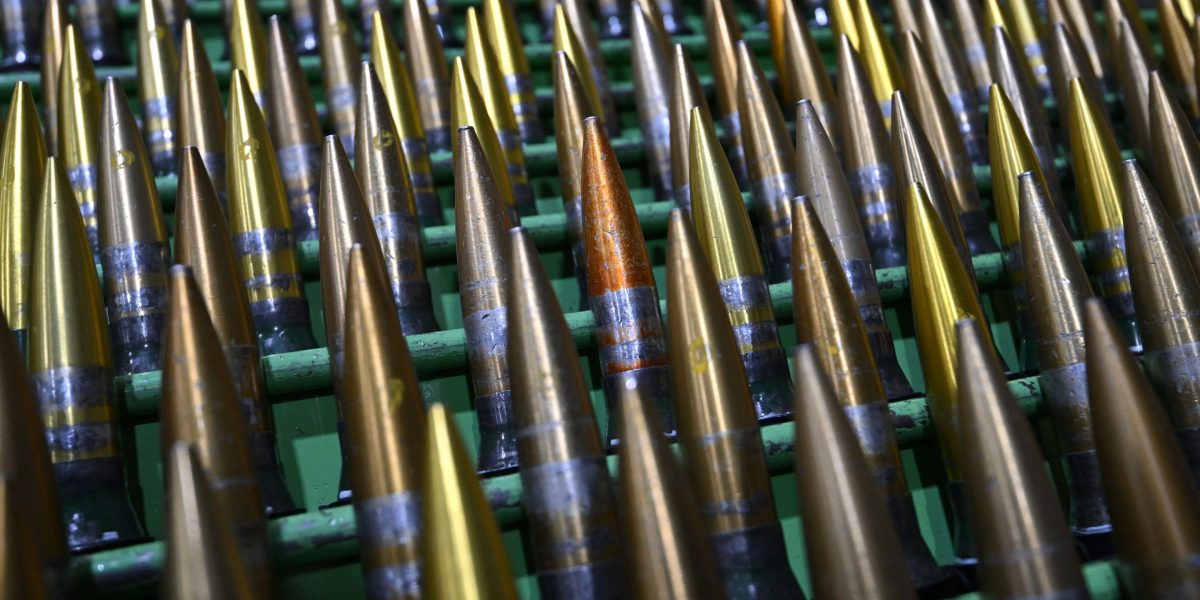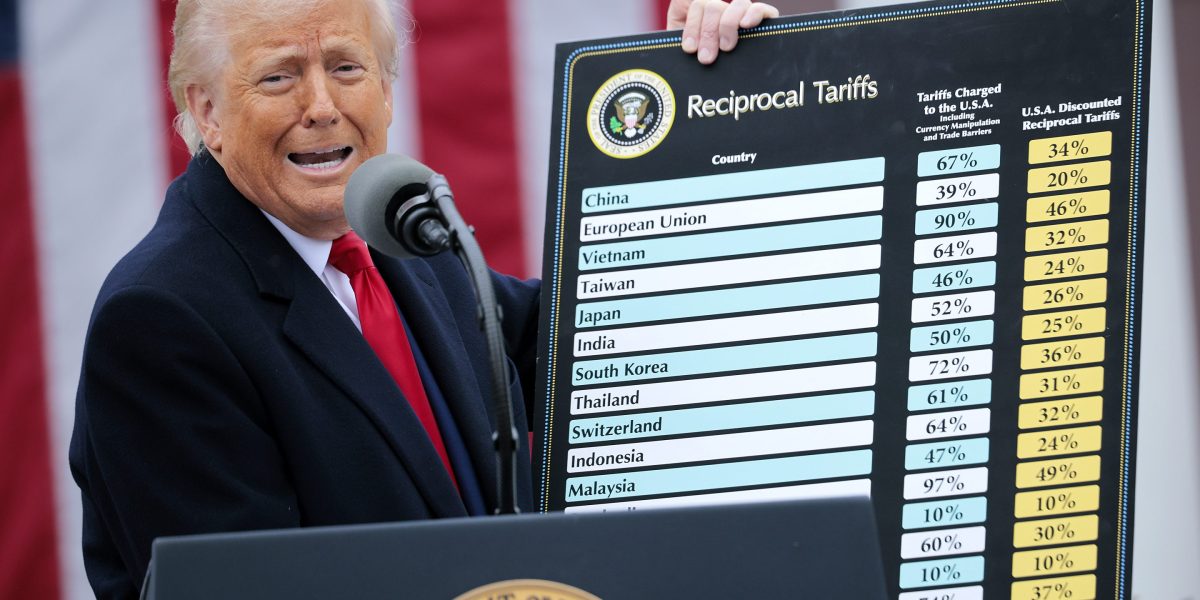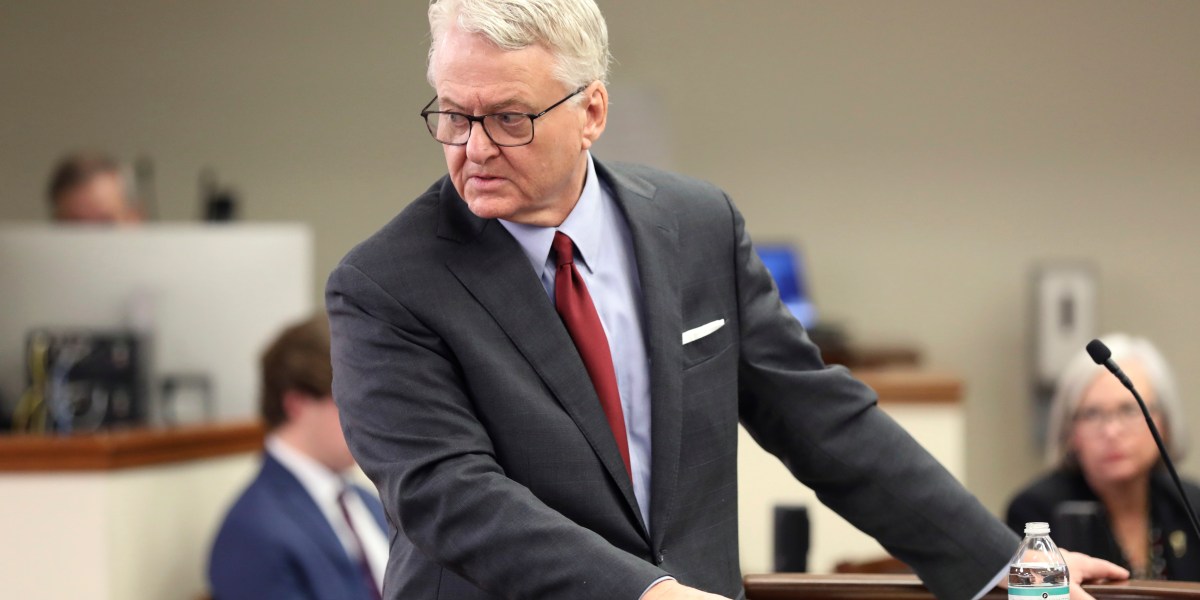South Korea’s Hanwha Aerospace Co. has emerged as the world’s best-performing defense stock as investors bet the upending of security alliances by U.S. President Donald Trump will spur a buying spree for weapons, particularly in the affordable conventional arms the company’s been making for decades.
Its parent Hanwha group, the country’s seventh-largest family-controlled conglomerate, is hoping to capitalize on the expected boom with a massive share sale for its weapons unit to finance large-scale investments and overseas deals. Now regulators, as well as some investors, are starting to ask whether it’s getting ahead of itself.
Hanwha Aerospace shares have risen more than 3,100% in the last five years, making it the best performing defense stock on Bloomberg’s WORLD index. It and smaller rival Hyundai Rotem have been the top two gainers in Asia’s stock market so far this year, more than doubling in value. Both are little known outside South Korea but play a key role in preparing the country’s troops for possible battle with its heavily militarized neighbor, North Korea.
Hanwha Aerospace last year won a deal to sell more K9 self-propelled howitzers to Poland, part of a weapons-supplying agreement between South Korea and the eastern European country. Expectations for overseas growth have helped the Hanwha group’s market capitalization nearly double since the start of the year to around 73 trillion Korean won ($50 billion).
“We are witnessing signs of a new Cold War as every country is seeking to strengthen its own security,” said Choi Kwangwook, chief investment officer at TheJ Asset Management with 3.8 trillion won in assets under management. “Demand for weapons is exploding now.”
Amid the enthusiasm, Hanwha last week unveiled plans for the aerospace business to raise 3.6 trillion won in what would be South Korea’s largest rights offering ever, according to data compiled by Bloomberg. The company said it will use the proceeds to invest in overseas plants and buy stakes in foreign partners. That triggered a selloff that sent its shares down as much as 16% last Friday. The announcement came on the heels of its purchase of a 9.9% stake in Australian shipbuilder Austal Ltd.
Late on Thursday, Korea’s Financial Supervisory Service said that the company’s filing on the share sale was “insufficient” for investors. That echoed concerns by some shareholders who had been seeking higher returns and questioning the company’s governance. The announcement came after Hanwha Aerospace’s board approved the use its cash flow to acquire a stake worth 1.3 trillion won in the group’s shipping unit Hanwha Ocean Co. from affiliates including Hanwha Energy, which is wholly owned by the Hanwha chairman’s three sons.
The shares fell more than 4% by Friday afternoon. Nomura Securities Co. analyst Eon Hwang, however, said he was maintaining his “buy” recommendation on the shares.
“Despite the concerns regarding governance, we expect near-term catalysts to drive its share price recovery,” he said. “We recommend Hanwha on the back of its strong earnings growth, overseas new orders and attractive valuation compared to peers.”
Hanwha shares are trading at just 19 times expected earnings, much lower than European peers — around 41 times for Rheinmetall AG or 25 times for Leonardo SpA. The company aims to generate 70 trillion won revenue by 2035, with 10 trillion won annual profit, when it completes building production facilities in Europe, Middle East, Australia and the U.S.
Investors said Hanwha’s advantage was its experience of producing relatively affordable weapons designed to defeat Soviet-era systems, including those deployed by Russia against Ukraine. Hanwha never stopped producing conventional weapons and armored vehicles, even amid expectations that warfare was shifting to drones and AI.
“There are very few countries in the world that produce these kinds of old-fashioned weapons and no one expected so far we would badly need them again for a war with land-based troops,” said Lee Chaiwon, chairman of Life Asset Management, a long-term fund running 1.6 trillion won in assets. “South Korea definitely has an edge in production of these obsolete weapons.”
Though South Korea does not sell weapons to countries at war and denies it is supplying arms to Ukraine, it does sell to the U.S. and European governments looking to boost their stockpiles. South Korea is ranked as the world’s 10th largest weapons exporter, according to a report from the Stockholm International Peace Research Institute, and is aiming to become number four by 2027.
While much smaller than industry leaders like Lockheed Martin or BAE Systems, the Korean manufacturers also have a reputation for delivering such weapons more quickly than rivals, a point noted by Polish President Andrzej Duda.
“Why did we buy South Korean weapons? The reason is simple,” the president said during his visit to NATO earlier this month. “We think South Korean partners would be able to supply high-quality weapons within a few months.”
Some analysts saw more room for gains if Hanwha succeeds in tapping into U.S. efforts to revive its shipbuilding industry. Trump in November told South Korea’s President Yoon Suk Yeol that he wanted close cooperation with South Korea in the sector. Last year, Hanwha Ocean bought the Philly Shipyard in Philadelphia in a deal valued at $100 million. Bloomberg Intelligence analyst Eric Zhu said Hanwha may be able to tap into U.S. Navy programs that are projected to cost $1.06 trillion in shipbuilding over the next thirty years.
Herald van der Linde, head of equity strategy at HSBC, said the shift in global defense spending should bring substantial benefits over the next several years but warned of excessive optimism.
“Korea has exposure to shipbuilding and others. It can gain market share because generally the Americans or the Chinese are not going to buy from each other,” he said. “But it’s the same as with other sorts of hype, like AI. At some point in time you’re gonna say everybody loves AI and if everybody loves it, you have to be careful.”
This story was originally featured on Fortune.com
Source link


 Entertainment8 years ago
Entertainment8 years ago
 Politics8 years ago
Politics8 years ago
 Entertainment8 years ago
Entertainment8 years ago
 Entertainment8 years ago
Entertainment8 years ago
 Tech8 years ago
Tech8 years ago
 Tech8 years ago
Tech8 years ago
 Tech8 years ago
Tech8 years ago
 Politics8 years ago
Politics8 years ago






